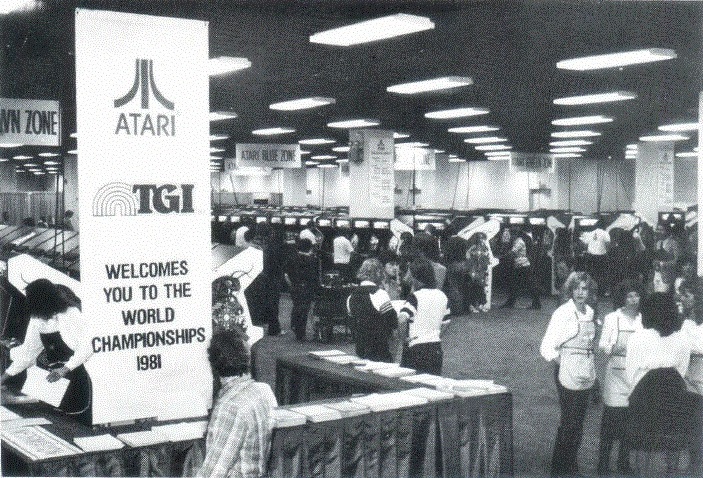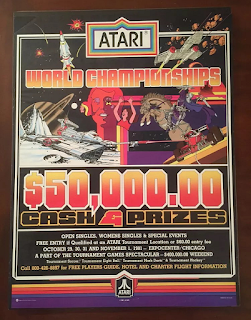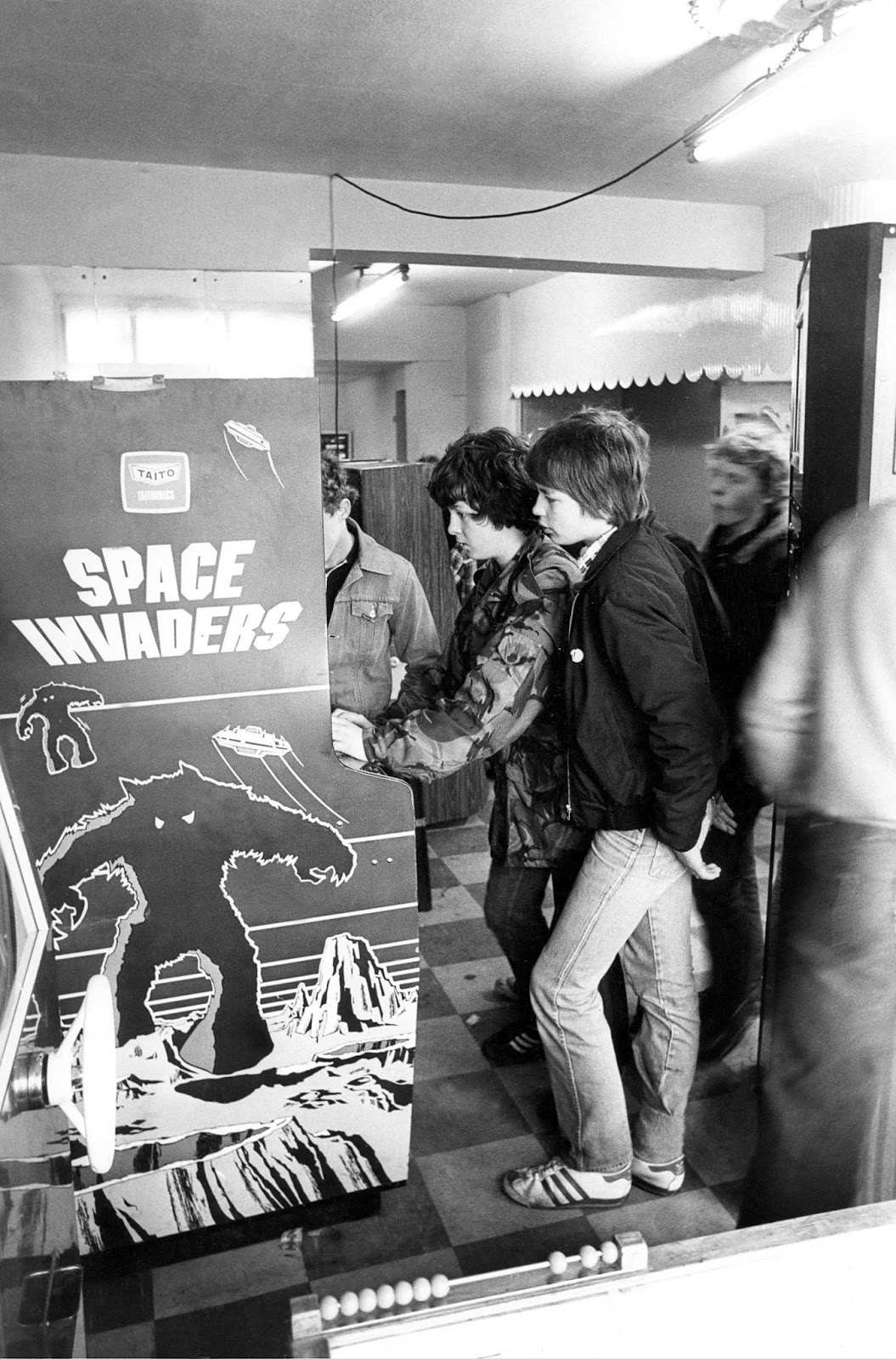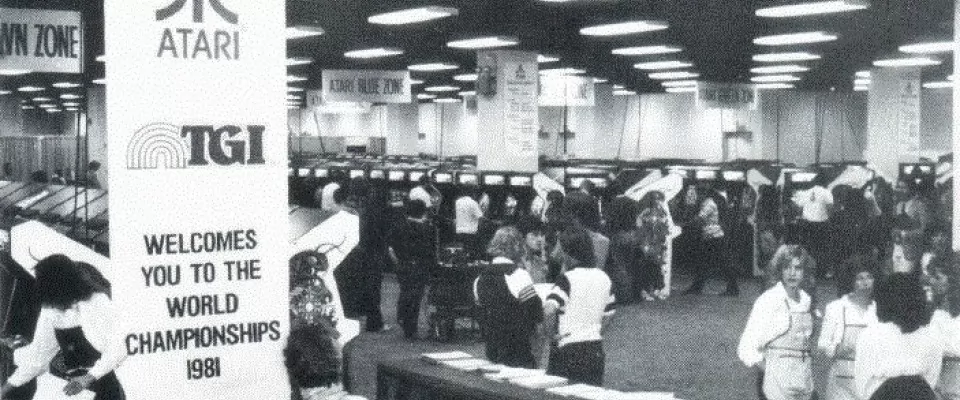The first video videogame tournaments: the origin of "eSports".
Electronic sports or "eSports" are video game competitions that have been increasing in popularity over the years, being a lucrative sector that currently moves hundreds of millions of euros.
Its origins date back to the first video game tournaments in history, which were held in the 1970s. Long before eSports became popular worldwide thanks to the growth of the Internet, the first amateur video game competitions were already being organized during the 1970s and early 1980s.
Participants competed in classic video games such as "Spacewar", "Pac-Man", "Space Invaders" or "Donkey Kong", in tournaments where the real prize for the winner was usually the satisfaction of being recognized as the best player of his favorite video game. The economic prize was often symbolic, far removed from the generous benefits that can be obtained today by players in a professional "Gaming" competition.
It is not easy to determine which was the first video game competition in history. It is usually considered the Space Invaders championship organized by Atari in 1980 as the pioneer and the tournament that was the origin of eSports, however years before other video game competitions were held that can also compete for this honorary title and that in any case are already part of the history of video games.
The first video game tournaments
In the late 1960s and early 1970s, video games were mostly programs that the first computer enthusiasts developed as a challenge or as mere fun, being very few places that at that time had a computer to experiment. Those were the beginnings of video games and in some Universities they started to develop some primitive video games that only a few could try and play.
In this context, Standford University in Palo Alto, California, organized on October 19, 1972, the first known video game competition, the "Intergalactic Spacewar Olympics" event. It was a tournament of the mythical space combat video game "Spacewar!", a game developed 10 years earlier at the Massachusetts Institute of Technology (MIT) by Steve Russell, considered one of the most influential games of all time.
The Spacewar competition took place at the University's Artificial Intelligence Laboratory using a PDP-10 computer. This first tournament in the history of video games involved 24 players competing for a prize consisting of an annual subscription to "Rolling Stone" magazine. The event was held at eight o'clock in the evening, and to encourage more people to participate, free beer was offered to all attendees.
There were three different types of competition: a solo game of Spacewar, won by Slim Tovar; a team tournament, won by Slim Tovar and Robert E. Maas; and a five-player simultaneous game, called "Free-For-All", won by Bruce Baumgart.
There is a transcript of everything that happened on that historic night during the "Intergalactic Spacewar Olympics", narrated by Stewart Brand, a Stanford graduate, famous writer and then reporter for Rolling Stone magazine: Spacewar - Fanatic Life and Symbolic Death Among the Computer Bums.
This original Spacewar tournament organized by Stanford University was undoubtedly pioneering, however it was only aimed at a small group of people, and although it had some repercussion thanks to the coverage of Rolling Stone, video games were still years away from becoming popular and reaching the general public. The first video game competition in history remained almost an anecdote at the time, but it also served as a first example of what was to come.

In December 1974 the Japanese company SEGA sponsored a curious "TV game" championship at the Pacific Hotel in Tokyo. It was actually a commercial event of the company to, as stated by SEGA's own members, "promote interest in the game and sale of entertainment machines".
The tournament organized by SEGA was promoted throughout Japan, with 16 players reaching the final. The winners were awarded a color television (for the winner, Osamu Kuroda), a black and white television, transistor radios and tape recorders.
Although it cannot properly be considered a video game championship, the importance of this tournament organized by SEGA lies in the fact that it was one of the first national competitions to include video games.
Another early video game tournament was organized in May 1979 by "Scores arcade of Dallas" as part of the Winter Pinball Olympics. The event took place in the city of Dallas, Texas, with competitions being held on four different arcade machines: "Atari Football", "Double Play", "Triple Hunt", and "Space Wars".
There was also a fifth competition consisting of a "decathlon" of five pinball games and five video games: "Space Invaders", "Breakout", "Sea Wolf", "Laguna Racer" and "Destroyer". The tournament was picked up by "Play Meter" magazine, and although unfortunately there is not much information about it, it is known that the winner of the Atari soccer tournament was Rock Hornburgh.
A year earlier, in 1978, Millie McCarthy, president of the New York State Coin Machine Association, tried to organize an ambitious video game championship throughout the country, but his project ended in failure. McCarthy created the first "International Coin Olympics", with qualifying tournaments to be held starting in November for 18 months, with the finals to be played in February 1980 in New Orleans.
Up to $135,000 in prizes were announced for the winners, and the event was promoted in magazines for weeks, however it never materialized, as pinball manufacturers began to organize their own tournaments, eventually canceling the championship.

The outcome of the Space Invaders video game championship organized by the Atari company in 1980 was very different. On the occasion of the launch of the Atari 2600 cartridge, the company organized a nationwide championship of the video game throughout the United States as part of the promotion of the game, with the competition being advertised in the press and on television.
Atari's 1980 Space Invaders tournament attracted more than 10,000 players from across the country, with regional qualifiers held in Los Angeles, San Francisco, Fort Worth, Chicago and New York. The five regional winners faced off in a game of the original version of Space Invaders at the company's New York headquarters.
After an hour and 45 minutes of play, the winner of the tournament was Bill Heineman (now Rebecca Heineman), who would later found the company Interplay and become a well-known video game developer, highlighting her magnificent conversion of "Another World" to Super NES and Apple IIGS.
His prize as the winner of the tournament was an "Asteroids" video game arcade machine, although as he later stated, the prize he really wanted was the second prize, an Atari 800 computer.
Popularly considered the first video game championship in history, the Space Invaders tournament organized by Atari was a huge success in terms of attendance and had a great impact, being the first large-scale competition in the industry. From then on, video games soon became mass entertainment, reaching a much wider audience and laying the foundations for future "e-Sports" or video game competitions. It was also probably the first video game tournament in which some participants had sponsors, such as the finalist from Chicago, who was sponsored by an appliance store, wearing an advertising T-shirt during the event.
At that time the golden age of arcade video games was beginning, and after the success of the Atari championship, many more would soon follow, including big fiascos. Atari itself organized another video game competition in Chicago at the end of 1981, which it called the "Atari $50,000 World Championships".
Atari's event was touted as a major sports contest that would attract 15,000 of the best video game players from around the world to compete, with $50,000 in prizes to be awarded to the winners.

The tournament was a resounding failure. Only 138 players showed up, mainly due to the fact that each participant had to pay for their own transportation, accommodation, pay a $60 entrance fee to attend the event and also pay for the games on the machines out of their own pockets. To make matters worse, the participants did not know (since it was not announced) that they would only compete in the "Centipede" arcade, being a great disappointment for many players who were looking to compete in other Atari titles such as "Asteroids Deluxe", "Battlezone", "Warlords" or "Red Baron".
There was no winner of the competition (actually there were official winners, but the checks delivered were bounced and never cashed), and the 1981 Atari World Championship went down as one of the biggest fiascos in the history of video game tournaments.
Despite this setback for Atari, a minor one for the company compared to the disaster the following year with the release of the video game "E.T. the Extra-Terrestrial" , video games were still rapidly increasing in popularity, and the industry's growth was already unstoppable.
In the summer of 1981 the "Putt Putt $10,000 Pac-Man Tournament" was organized in the United States, a tournament dedicated to the classic "Pac-Man" with qualifying rounds held throughout the country at "Putt Putt Golf & Games" centers. The final was held in Fayetteville, North Carolina, with Steve Hair emerging as the winner after scoring 372,600 points in the game. The amount he received for winning the competition was a substantial $5,500.
Also during 1981, businessman and video game aficionado Walter Day visited more than 100 arcades over several months, collecting the highest scores for each game. In November he decided to open in Ottumwa, Iowa, his own dedicated business called "Twin Galaxies", one of the most popular 80's arcades in the United States. On February 9, 1982, his database of records was eventually published as the "Twin Galaxies National Scoreboard".
Walter also created the Twin Galaxies organization, dedicated to help the promotion of video games and to collect the highest scores achieved, which were later published in the "Guinness Book of Records". The creation of Twin Galaxies was a huge boost to both the industry and video game competitions, as Twin Galaxies itself also organized tournaments.
In January 1983, Ben Gold became the first video game world champion in history, after winning the "North American Video Game Olympics", in a competition organized by Twin Galaxies. The event was held between January 8 and 9, 1983, and was later broadcast by the ABC television network.
The Twin Galaxies tournament brought together 19 of the best video game players in the United States, who competed in five different arcades: "Frogger," "Millipede," "Joust," "Super Pac-Man," and "Donkey Kong, Jr." Winner Ben Gold's name was recorded in the Guinness Book of Records as the first video game world champion.
Starting in 1983, Twin Galaxies organized the annual "Video Game Masters Tournament", the most prestigious video game tournament of the time, where players sought each year to set new records, since if they achieved them, they would be officially certified by the Guinness Book of Records.
Some video game players began to acquire certain fame and media attention. One of the first examples was Greg Davies, who in July 1980 played "Asteroids" continuously for 21 hours and 50 minutes in a shopping mall in Utah. Davies scored more than 10 million points, and his feat did not go unnoticed, being interviewed shortly after on television, however his fame was short-lived.
There were other very different cases, such as that of Billy Mitchell, one of the most popular players of the time after achieving a stratospheric score in the classic "Donkey Kong" in 1982. Billy Mitchell was one of the first players who was able to dedicate himself professionally to his hobby, and there are several documentaries with his exploits, among which "The King of Kong: A Fistful of Quarters" (available on Amazon) stands out, with the story of Donkey Kong's record, and the attempts of another well-known player, Steve Wiebe, to beat it.
Thanks to the popularity of arcades, the industry was experiencing a boom time, and during the early 1980s video games began to become part of popular culture. In addition to the success of the Arcades, video game consoles and home computers were beginning to appear in homes, video games were commonplace in 1980s movies, and video game championships were starting to be held all over the world. Between 1982 and 1984, there was even a TV show on TBS called "Starcade", where gamers competed to beat scores in different video games.
The first video game tournaments in the 1970s and early 1980s had laid the foundations and would be the origin of eSports, a term that would not be used until several years later to define "electronic sports" competitions.
With the advent of the Internet and the growth of the industry, video game championships eventually became a lucrative business that currently moves hundreds of millions a year, and has also served many players to achieve what seemed unthinkable decades ago, making a living playing their favorite video game.

